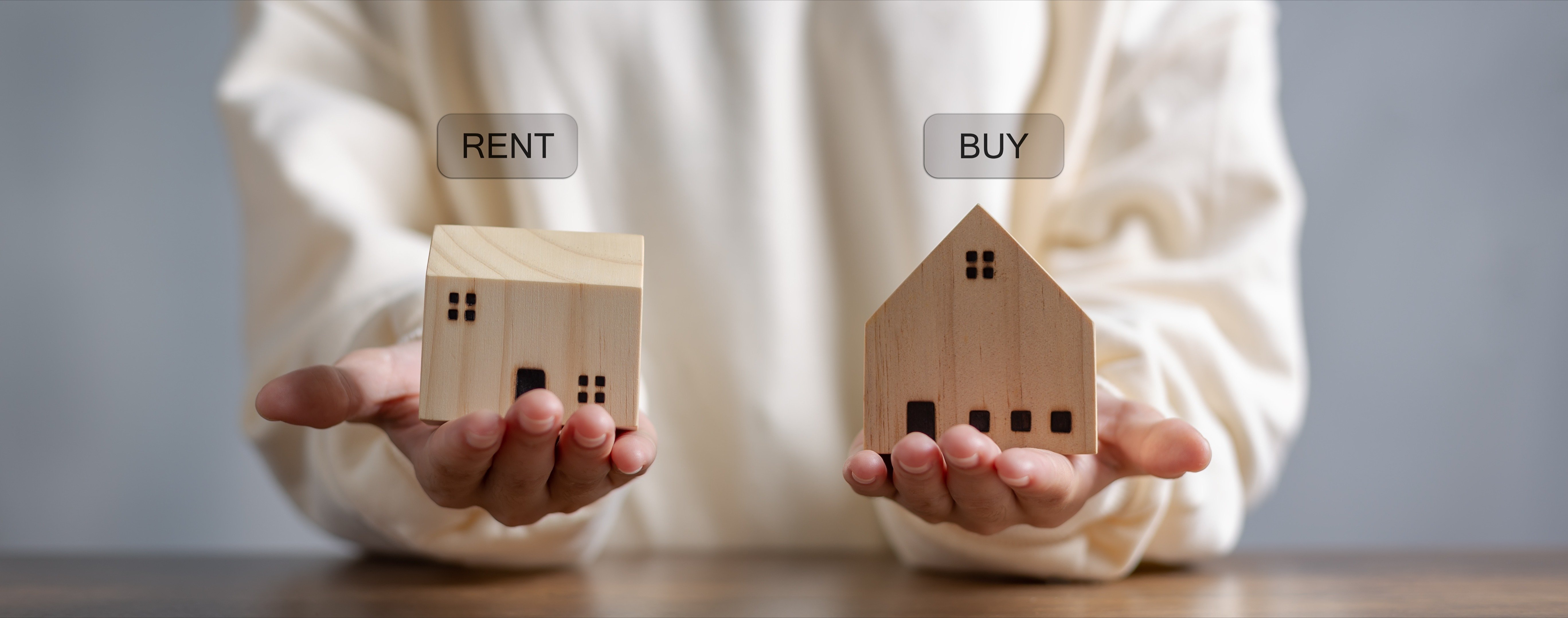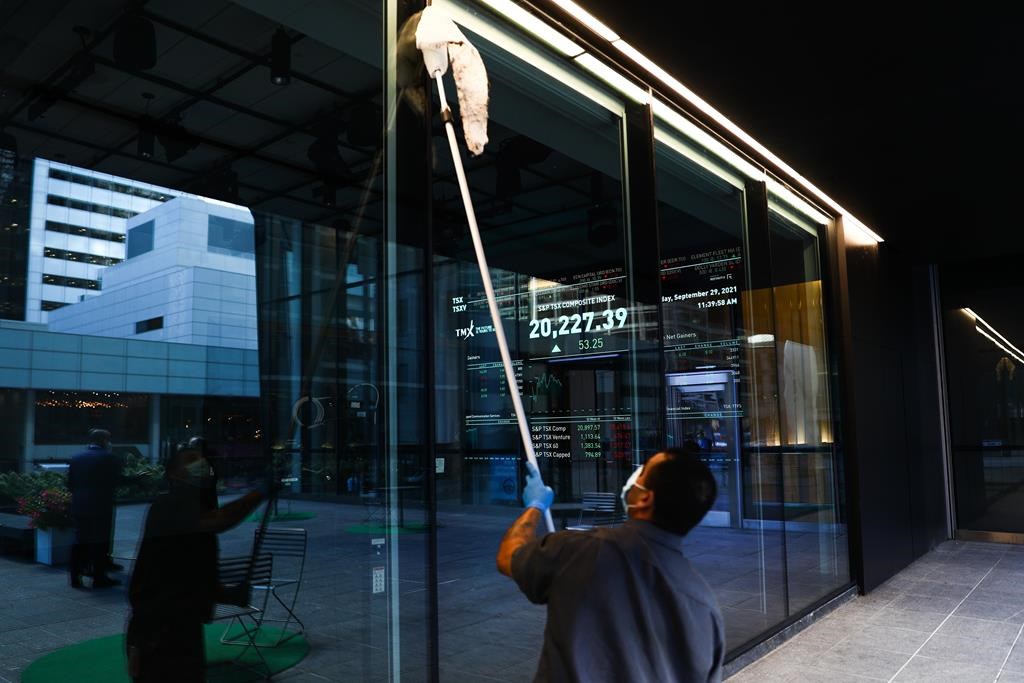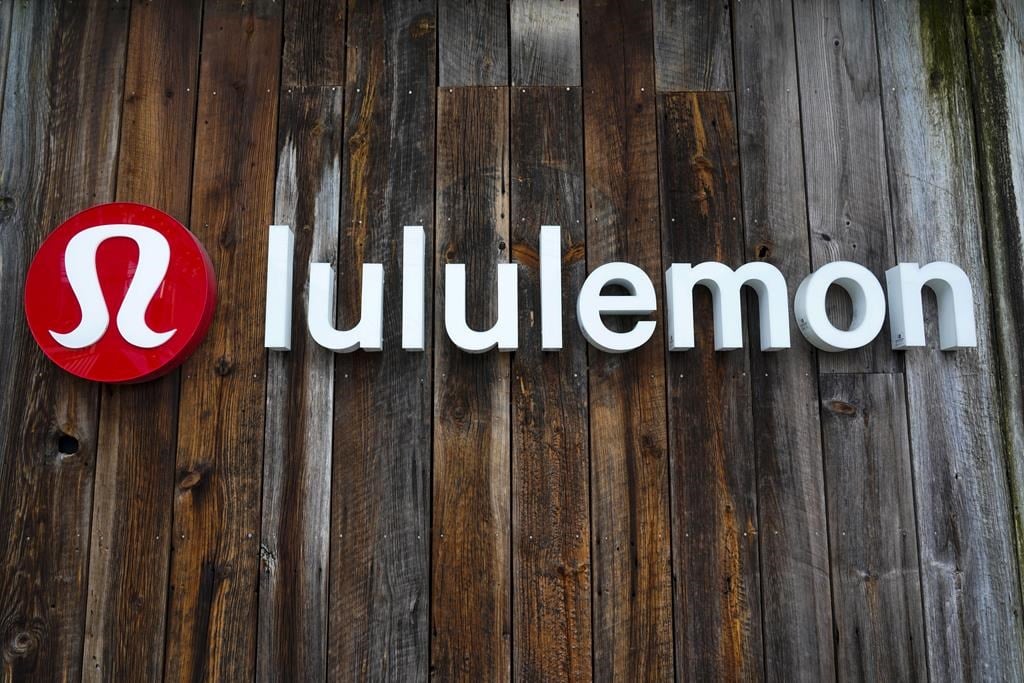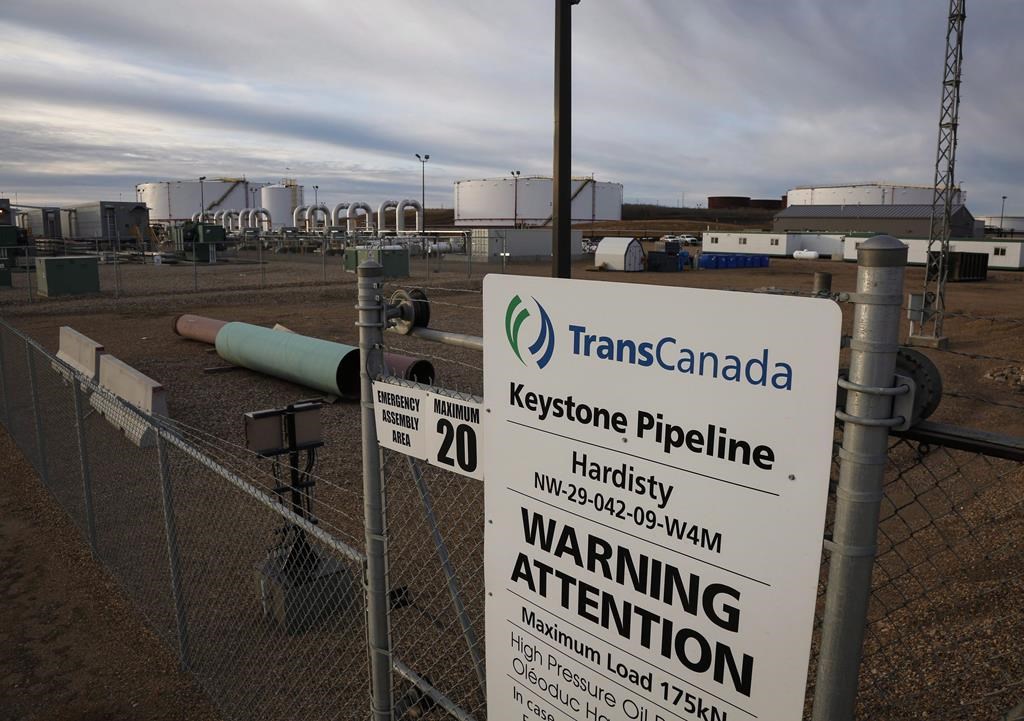
The rent vs. buy debate in the current Canadian housing market
KT Stock photos / Shutterstock
Updated: November 16, 2023
Renting vs. owning a home? There's no easy answer to which is better, but we break it down to help you make a decision on rent vs. buy a house.
Once upon a time, buying a home in Canada was simply a milestone in the life of the average Canadian. But times have changed: inventory is low, prices are high and sales have slumped, making homeownership difficult and calling the investment potential of real estate into question. Simultaneously, the surge of remote work situations and the shift to a global economy have made the portability of renting an attractive choice. It’s left many Canadians with the rent vs. buy debate.
With so many variables — personal and financial — in play, whether to rent or buy may well come down to your financial circumstances, future goals, and personality. This article outlines some of the considerations when deciding to rent or buy a home.
Benefits of owning your own home
There are many reasons why homeownership has serious appeal (not dealing with nosy landlords is definitely one of them). Here are some of the common benefits of owning your own home:
- You build equity - When you make a mortgage payment, you build equity (the percentage of your home you truly own and isn’t encumbered by a mortgage). So each monthly payment takes you one step closer to owning your own place – something renting can’t give you.
- It’s generally a good investment - Homes usually go up in value, so if you buy a home within your budget, the payoff can be plenty down the line. The general rule is to hold onto a property for five years or longer to increase home appreciation or value. This means you could stand to make more money if you choose to sell it in the future.
- Stability - With a fixed-rate mortgage, your mortgage payment is predictable and more stable than renting (yes, your lovely landlord can hike the rent). Overtime, as rents go up, it will be cheaper to own.
- More privacy - There’s no landlord policing your every move.
Related: Variable vs. fixed/open vs. closed mortgages
Downsides of owning your own home
Homeownership isn’t all unicorns and rainbows. Here are some of the downsides to homeownership that may sway you towards renting:
- It’s a commitment - You can’t just sell your house overnight or break your mortgage on a whim (at least, not without a hefty penalty). There are services that exist to streamline and expedite the home-selling process. Buying a home is only profitable if you’re sticking around for at least five years or longer.
- Ongoing maintenance costs - When renting, your landlord is responsible for the upkeep of your home. But homeowners have to foot the bill for regular maintenance and repairs: whether it’s replacing the roof once every ten years or fixing an exploding toilet, you’re on the hook.
- Mortgage payments can be higher - By and large, it’s usually cheaper to rent than to pay for a mortgage. However, this depends heavily on your location.
- ROI can be slow - It can take time for the value of your home to increase, so patience is essential. Don’t expect an immediate return on investment.
- Less disposable income - Homeowners take on considerable responsibility and debt, which may prevent them from investing elsewhere (in RRSPs or TFSAs, for example). In some cases, a homeowner may find themselves “house poor” – meaning a big part of their income goes towards the costs of homeownership, leaving little left over to pay for other needs and wants.
Related: Buying a house in Canada: A guide to buying your first home
What Are the Benefits of Renting?
It may not be a popular opinion, but renting a home has some perks worth considering. Here are the pros of renting a home:
- Cheaper - In general, rent payments tend to be lower than mortgage payments and may cover other costs, such as utilities, hydro, cable, and internet.
- Flexibility - In the era of Airbnb, renting gifts you the ultimate flexibility. Most leases are one year, but it’s possible to score an agreement that’s month-to-month. You may decide to get a short-term rental through a home-lending website. If you’ve got wanderlust or commitment phobia, renting may work best for you.
- Little or no maintenance - You don’t have to shell out a wad of cash when the dishwasher breaks or the basement floods. Call your landlord instead!
- Financial freedom - As a renter, you’ll likely have more free cash to sink into investments and retirement planning.
Read More: A guide to retirement savings plans in Canada
The downsides of renting a home
Let’s be honest: there are some unappetizing things about renting. Here are some not-so-great aspects of being a renter:
- You’re not building equity - While renters avoid taking out a mortgage and footing the bills for running a house (which can be big bucks), they also lose out on building equity. Instead, your monthly rent cheque goes towards paying someone else’s mortgage.
- The landlord is boss - We’ve all heard horror stories about deadbeat landlords and surprise eviction notices. Renting means you’re living on someone else’s turf – and they get to call the shots (within reason, though…there are laws, after all).
- Instability - In accordance with local laws, the landlord can hike the rent. A spike in your rent payment could trigger you to start packing – which is inconvenient and, for cash-strapped people, could trigger a full-blown financial crisis.
Rent vs. buy: How to decide
Before you make the leap from renting to owning, it’s wise to dig in and analyze your current financial situation and short-to-medium-term goals. We’ll deal with specific financial considerations later, but first, survey your personal situation and readiness for homeownership.
Where do you want to live?
The first (and most important) thing to do is to compare the cost of rent to mortgage payments in your neighbourhood. The housing market will exert a significant influence on your decision-making. In “hot” housing markets like Vancouver and Toronto, the cost of a mortgage may be significantly higher than the amount you would pay in rent. As a general rule, if you’re paying more than $3,000 per month in rent, you can probably do better on a mortgage.
Can you pass the 40% rule?
The “40% rule” says you should be able to meet your housing costs (principal and interest, taxes, and heat), as well as your other registered debts (such as car loans and credit cards), with no more than 40 percent of your gross income. Not only is this a handy guideline for your personal planning, but it’s also a measure applied by many lenders. Relatedly, you should be able to cover monthly costs such as your housing, food, and transportation (known as “fixed costs”) with 50% to 60% of your net monthly income. Any more than that, and you’re likely to struggle.
How stable is your employment situation?
Without stable employment, you’ll have trouble convincing a lender to give you a mortgage, but more importantly, you may run into problems meeting your obligations. Do a realistic survey of your employment picture before making a decision.
How long do you plan to live in your home?
With all the talk of investments and equity, it can be easy to lose sight of some basic truths. As a general rule, the longer you live in a place, the better the investment. This is partly because there are numerous costs associated with the transfer of real estate.
Are you ready for the commitment?
Homeownership is a big step. It means you’re saying “yes” to forking over a chunk of change for property taxes, home insurance, maintenance, utilities, and a mortgage. Are you really ready for it?
When to rent
You’re not ready to settle down
If you’re not ready to put down roots and your long-term plans are in flux, then it would make more sense to rent an apartment, condo, or house. If you’re thinking about travelling, going back to school, or changing careers, hit pause on your plans for homeownership.
You can’t afford it
Affordability is another concern you may have. If you’re unable to afford the mortgage payment and ongoing expenses that come with homeownership, renting is a more affordable option and makes fiscal sense in the short term for you. Affordability can also be affected by the debt you could have. Focus on paying off your student loans, credit cards, car loans, or whatever else is bogging down your bank account. When you’re back in the black, you’ll be ready to approach a mortgage lender to talk about homeownership.
You don’t have the down payment
You may not have a down payment saved up. Stick with renting, and instead, set up an automated savings plan to a high-interest TFSA account. After a few years, you’ll be golden. Speaking of savings, you may have savings you want to invest what you’ve already saved. Renting will likely give you more wiggle room to make regular payments to a TFSA or RRSP investing account.
Related: The best TFSA savings account rates in Canada for 2022
You have “precarious employment”
If your job is temporary or you’re self-employed, a mortgage lender often gets nervous. Your best bet is to spend a couple of years renting, saving up for a downpayment, and building up proof of your income. That generally means being able to produce two years of tax returns from the Canada Revenue Agency.
When to buy
You want a place to call home
If you’re ready to settle down and want a place to call home with no anticipation of moving for at least five years or more, buying a house may be the right step for you. You also want to make sure you’re financially and emotionally ready for what comes with homeownership. If you’re ready to take on the many costs associated with buying a home, it’s time for you to buy. We’re talking about making your mortgage payments, utilities, repairs and maintenance, property taxes, home insurance, snow removal, condo fees, and so forth.
You’re financially fit
You’ve saved enough money to cover closing costs for a down payment. You’re debt-free (or almost debt-free) and have a chunk of change that you can put toward ongoing maintenance and property taxes. You’re prepared to put your needs ahead of your wants, temporarily shelving plans like travel and buying the latest gadgets.
You have a steady source of income
You’re not planning on making an abrupt career change that could impact your income or taking time off to explore other pursuits like travel. If you’re self-employed, you have at least two years of CRA Notices of Assessment to show a mortgage lender that you’ve got a stream of income coming in the door.
How much does home ownership cost?
If you’re convinced that homeownership is for you, the next step is taking a detailed survey of the real financial obligations of homeownership. Use these guidelines to estimate the real financial responsibilities of buying a home.
- Down payment: 5% to 20% - This is the standard amount you’ll need to apply for a mortgage. If you put down less than 20% of the purchase price, you’ll have to pay “CMHC insurance” – a mandatory mortgage default insurance policy for those who purchase a home with less than a 20% down payment.
- Closing costs: 1.5% to 5% - This includes lawyer fees, appraisal fees, home inspection fees, and property tax adjustments.
- Home insurance: $50 to $100 per month - A home is an enormous investment. You’ll want to protect it.
- Maintenance: 1% to 4% of your home’s value - You’ll be facing a multitude of repairs in your home’s lifetime: a new water heater, roof repairs, blown electrical circuits – you name it! Homes need regular, expert maintenance if they are going to be safe and efficient. That’s why there’s a general rule to expect your annual home maintenance to be 1% to 4% of the value of your home. Regular upkeep also protects your resale value.
A note for first-time homebuyers: Incentives like the RRSP Home Buyer’s Plan, the First Time Home Buyer’s Tax Credit, and the Land Transfer Tax Rebate can all save you a bundle.
Is homeownership a good investment?
If you have the resources to buy, homeownership is more than likely a wise investment. Every time you make a mortgage payment, you are essentially paying down the principal and taking a step towards owning a piece of property that will appreciate over time. Think of your mortgage payment as an investment or a savings strategy: if you sell your house down the road, you’ll get back the money you’ve paid out and likely turn a profit. If you stay put long enough, this can grow into a very healthy nest egg.
Of course, there are no guarantees and even buying a house comes with risks. In the past, CMHC has warned about overvaluation in certain areas of Canada’s housing market, but for the most part, buying a house in Canada is a safe bet. Just make sure to buy within your budget and plan to hold onto the place for more than five years.
Verdict: Is it better to rent or own a house?
When it comes to renting vs. buying a house, neither is better than the other. There’s no clear-cut answer to this age-old debate, and it will require some soul-searching and number-crunching on your part. Your current personal and financial situation, as well as your goals and location, will largely determine what’s right for you. Use our rent vs. buy calculator to see which option makes fiscal sense.
Ready to buy?
If you decide to take the plunge into homeownership, remember to shop around for the best mortgage lender and get the lowest mortgage interest rate possible. A bit of research could save you hundreds of thousands of dollars in the long run. From our research on the best mortgage interest rates in Canada, consider one of the best online mortgage lenders in Canada. They offer some very competitive rates, and you can do the entire application online in mere minutes.
Have to rent instead?
If you choose to remain a renter, use the situation to your advantage and set up an automatic saving plan to an investing account with a robo advisor or online brokerage. You may not be building equity with mortgage payments, but you can still build a “wealth empire” with your disposable income. According to the 50/20/30 budgeting rule, aim to put away 20% of your after-tax earnings towards savings and investments.
With low-interest rates and climbing market values, buying a home may well be on your radar. But with obstacles like paying down debt and the mortgage stress test, renting may also make good financial sense for many Canadians, especially since you value financial freedom. Both offer risks and benefits, and working through our checklists and guidelines should help you make an informed and realistic decision.
Disclaimer
The content provided on Money.ca is information to help users become financially literate. It is neither tax nor legal advice, is not intended to be relied upon as a forecast, research or investment advice, and is not a recommendation, offer or solicitation to buy or sell any securities or to adopt any investment strategy. Tax, investment and all other decisions should be made, as appropriate, only with guidance from a qualified professional. We make no representation or warranty of any kind, either express or implied, with respect to the data provided, the timeliness thereof, the results to be obtained by the use thereof or any other matter.




